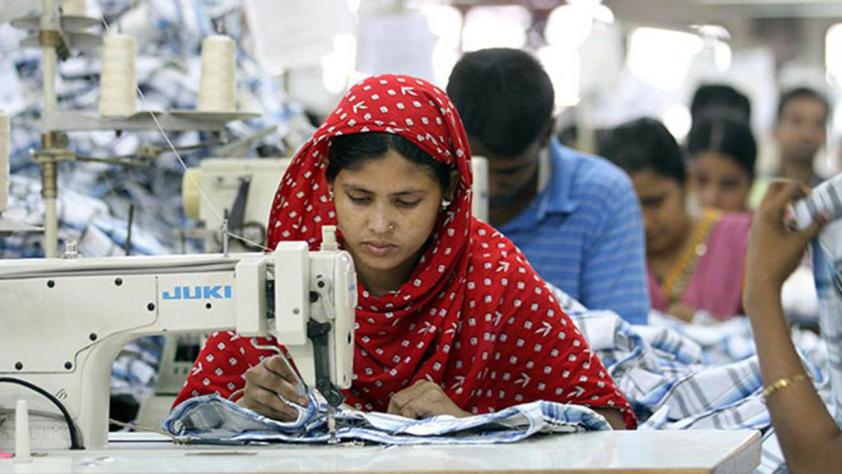Rejecting TIB findings on garment supply chain, garment makers today said the report is baseless and intentional to damage the image of the sector.
Siddiqur Rahman, president of the Bangladesh Garment Manufacturers and Exporters Association (BGMEA), at a press conference protested the report of the Transparency International Bangladesh (TIB) on garment supply chain.
READ: RMG supply chain plagued by graft
“We do not know how can TIB dare to say like this?” Rahman said at the hurriedly-called media briefing.
He denied the allegation of selling the imported fabrics in local markets by the garment makers.
Regarding the sub-contract, Rahman said the garment makers execute the sub-contract with the permission from the buyers to whom they supply the products.
“So, if buyers allow sub-contracting, there is no offence in it,” Rahman said.
TIB in a report yesterday said the supply chain of the country’s biggest export earner is plagued by irregularities and corruption for which global apparel buyers are also responsible.
The anti-corruption watchdog detected anomalies at 16 stages — from order placement to shipment — in the apparel supply chain.
According to the TIB, irregularities and corruption at different stages of the chain have become almost a custom in some cases. And various stakeholders, including factory owners, buyers, auditors and inspectors, are involved in it.
The TIB yesterday released the report that exposed corruption in the supply chain of the garment industry.
The TIB prepared the report based on information gathered from November 2014 to April last year through interviews of stakeholders, including buyers and global brands or their agents, garment factory owners and exporters, workers, compliance auditors, factory inspectors, merchandisers, shipping agents and bankers.
The TIB conducted the study jointly with Transparency International, Germany.
The TIB said this is a qualitative study through which it could detect the stages of corruption in the supply chain of garment industry. It didn’t quantify the amounts of illegal transactions that take place in the supply chain.
